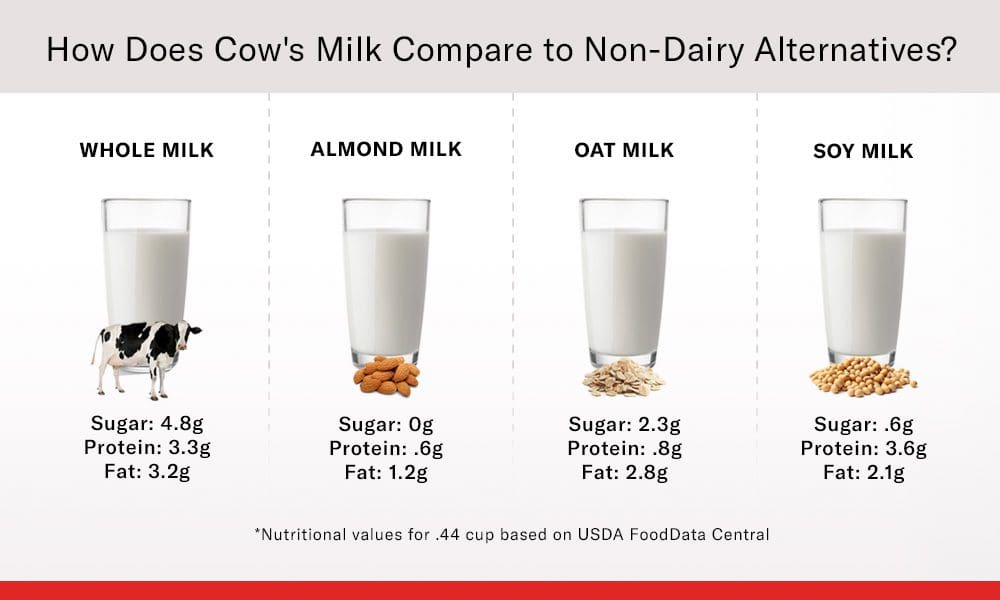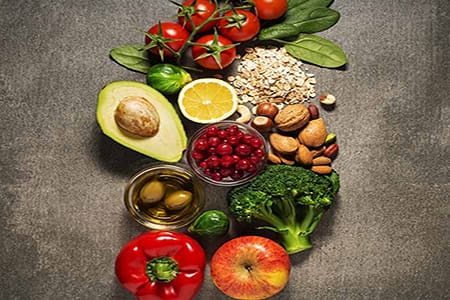The world of food and nutrition is constantly evolving, with new trends and diets emerging every year. However, one movement that has been gaining significant momentum and attention is the plant-based revolution. As more and more individuals become conscious of their food choices and the impact of animal agriculture on the environment, the demand for vegan alternatives has skyrocketed. From plant-based burgers to dairy-free milk, vegan options are now readily available in supermarkets, restaurants, and even fast-food chains. This shift towards a more plant-based diet is not only driven by ethical and environmental concerns, but also by the growing body of evidence supporting the health benefits of a plant-based lifestyle. In this article, we will explore the plant-based revolution and how these vegan alternatives are not only changing the way we eat, but also shaping the future of food. From innovative products to changing consumer preferences, we will delve into the various factors driving this movement and its potential to transform the food industry.
Elevating sustainability: plant-based meat alternatives.
As consumer demand for sustainable and ethical food choices continues to rise, the food industry has responded with an array of innovative plant-based meat and dairy alternatives. These products not only offer a delicious and satisfying alternative to traditional animal-based products, but they also have a significantly lower environmental impact. By using plant-based ingredients such as soy, peas, and mushrooms, these meat alternatives require fewer resources, emit fewer greenhouse gases, and contribute to lower water usage compared to conventional livestock farming. Additionally, the development of plant-based alternatives has led to significant advancements in taste, texture, and nutritional profiles, making them highly appealing to a growing number of consumers seeking healthier and environmentally conscious options. The introduction of these sustainable alternatives is reshaping the future of food by challenging the dominance of traditional animal agriculture and paving the way for a more sustainable food system.
The rise of vegan cheese options.
Highlighting the innovation in plant-based meat and dairy alternatives, the rise of vegan cheese options is another significant development in the plant-based revolution that is shaping the future of food. With an increasing number of individuals embracing a vegan or dairy-free lifestyle, the demand for high-quality and flavorful vegan cheese alternatives has surged. Manufacturers have responded by introducing a wide range of vegan cheeses made from plant-based ingredients such as nuts, seeds, and soy. These innovative products not only mimic the taste and texture of traditional dairy cheese but also offer a healthier and more sustainable option. They are cholesterol-free, lower in saturated fat, and have a smaller environmental footprint compared to conventional dairy cheese production. As vegan cheese options continue to improve in taste and availability, they are gaining mainstream acceptance and becoming a popular choice for consumers looking for ethical, sustainable, and delicious alternatives to traditional dairy products. This growing market for vegan cheese is evidence of the ongoing transformation in the food industry towards more plant-based and environmentally friendly options.
Plant-based burgers surpass beef sales.
Plant-based burgers have made a significant impact on the food industry, surpassing beef sales and solidifying their position as a game-changer in the plant-based revolution. With advancements in technology and a growing emphasis on sustainability and health-conscious choices, consumers are increasingly opting for plant-based alternatives to traditional meat products. Plant-based burgers offer the taste, texture, and even the “bleeding” effect that was once exclusive to beef patties, all while being free from animal products. This shift in consumer preferences reflects the changing landscape of food choices and highlights the innovation in plant-based meat substitutes. As more people embrace these alternatives, traditional animal agriculture may need to adapt to meet the demands of a shifting market.

Dairy-free milk options go mainstream.
Highlighting the innovation in plant-based meat and dairy alternatives, the rise of dairy-free milk options has become a notable part of the plant-based revolution shaping the future of food. As consumers become increasingly conscious of their dietary choices and seek alternatives to traditional dairy products, a wide range of plant-based milk options have emerged, capturing mainstream attention. From almond milk to oat milk, these dairy-free alternatives offer a variety of flavors and textures that closely resemble traditional cow’s milk. Additionally, they provide an appealing option for those with lactose intolerance or who follow a vegan lifestyle. The growing availability and acceptance of dairy-free milk options signify a shift towards a more sustainable and inclusive food industry, challenging the dominance of traditional dairy farming and opening up new avenues for plant-based milk producers.

Plant-based options in fast food.
The plant-based revolution in the food industry extends beyond just dairy alternatives, as fast food chains are now recognizing the demand for plant-based options. In response to the growing popularity of plant-based diets and the desire for more sustainable and healthier choices, major fast food chains have started incorporating plant-based alternatives into their menus. These options include plant-based burgers, nuggets, and even plant-based sausage for breakfast sandwiches. By offering plant-based alternatives, fast-food chains are catering to a wider range of customers and acknowledging the shifting consumer preferences towards more eco-friendly and health-conscious options. This shift not only highlights the innovation in plant-based meat alternatives but also signifies a significant change in the fast food industry, as it adapts to meet the evolving needs and demands of its customers.
Ethical concerns driving consumer choices.
Consumers are increasingly driven by ethical concerns when making choices about the food they consume. With a growing awareness of issues such as animal welfare, environmental sustainability, and personal health, individuals are demanding more transparency and accountability from the food industry. As plant-based alternatives gain traction, consumers are embracing these products as a way to align their choices with their values. By opting for plant-based meat and dairy alternatives, consumers can reduce their reliance on traditional animal agriculture, which often involves practices that raise ethical concerns. This shift in consumer behavior not only highlights the innovation in plant-based alternatives, but also signals a broader societal shift towards more conscious and ethical consumption patterns. As the demand for these products continues to rise, it is clear that ethical considerations are playing a significant role in shaping the future of food.
Innovative technology creating realistic flavors.
In addition to the ethical considerations driving the demand for plant-based alternatives, innovative technology is playing a crucial role in creating realistic flavors that closely mimic traditional animal-based products. Companies are investing in research and development to perfect the taste and texture of plant-based meat and dairy alternatives, using cutting-edge techniques and ingredients. Through advanced manufacturing processes, such as high-pressure extrusion and 3D printing, these products are able to replicate the mouthfeel and juiciness of meat, while plant-based dairy alternatives are achieving the creaminess and richness of traditional dairy products. By combining the power of technology with plant-based ingredients, manufacturers are pushing the boundaries of what is possible in the realm of vegan alternatives. This innovation not only appeals to those following a plant-based diet, but also attracts curious omnivores looking for healthier and more sustainable options. As the plant-based revolution continues to reshape the future of food, the role of innovative technology cannot be overlooked, as it drives the creation of realistic flavors that satisfy the taste buds and broaden the appeal of these products.
Plant-based options for every taste.
Highlighting the innovation in plant-based meat and dairy alternatives, this article would explore how these products are revolutionizing the food industry and what it means for traditional animal agriculture. With the increasing demand for plant-based options, manufacturers have responded by creating a wide range of products that cater to every taste and preference. From plant-based burgers that sizzle on the grill to creamy dairy-free ice creams, the options are endless. For those who crave the taste of a juicy steak, there are plant-based alternatives that boast the same robust flavors and succulent textures. Similarly, cheese lovers can now indulge in a variety of plant-based cheeses that melt and stretch just like their dairy counterparts. Even traditional comfort foods like pizzas, hot dogs, and chicken nuggets have been transformed into satisfying plant-based alternatives. Whether you are a committed vegan, a health-conscious individual, or simply curious about trying something new, the availability and variety of plant-based options ensure that there is something for everyone’s taste buds.
The future of food is vegan.
As the demand for sustainable and ethical food choices continues to grow, the future of food is undoubtedly leaning towards a vegan revolution. The innovation in plant-based meat and dairy alternatives has paved the way for a shift in consumer preferences and the food industry as a whole. Not only are these products offering a compassionate and environmentally friendly alternative to traditional animal agriculture, but they are also showcasing incredible advancements in taste, texture, and nutritional value. With a wide array of delicious plant-based options now available, it is becoming easier than ever to embrace a vegan lifestyle without compromising on flavor or satisfaction. From plant-based burgers that perfectly mimic the experience of biting into a juicy patty to dairy-free milks and yogurts that rival their animal-based counterparts, these products are reshaping the way we think about food. As the public becomes more educated about the benefits of a plant-based diet, it is clear that vegan alternatives are here to stay and will continue to shape the future of the food industry.
Impact on traditional agriculture industry.
The rise of plant-based alternatives in the food industry is having a significant impact on the traditional agriculture industry. With more consumers opting for plant-based meat and dairy alternatives, the demand for animal products is experiencing a decline. This shift is challenging traditional agriculture practices and forcing farmers and producers to adapt to changing market trends. As more resources are allocated towards the production of plant-based alternatives, there is a potential decrease in demand for livestock farming, leading to job losses and economic changes in rural communities that heavily rely on animal agriculture. This shift is also prompting farmers to explore diversification and consider transitioning to plant-based farming practices or exploring new avenues within the growing vegan food industry. The impact on the traditional agriculture industry is substantial, highlighting the need for adaptation and innovation to meet the evolving demands of consumers.
In conclusion, the plant-based revolution is not just a trend, but a movement towards a more sustainable and ethical future of food. As more and more consumers are becoming aware of the environmental and health impacts of animal-based products, the demand for delicious and nutritious vegan alternatives is only going to continue to grow. With advancements in technology and innovation, the possibilities for plant-based options are endless. It’s safe to say that the future of food is indeed plant-based, and it is an exciting time to be a part of this transformative shift. Let’s continue to support and embrace the plant-based movement for the betterment of our planet and our own well-being.
FAQ
What are some of the key factors driving the plant-based revolution and the increasing popularity of vegan alternatives in the food industry?
Some of the key factors driving the plant-based revolution and the increasing popularity of vegan alternatives in the food industry include growing concerns about animal welfare, environmental sustainability, and personal health. Many consumers are becoming more conscious of the impact of their food choices and are seeking alternatives that align with their values. The rise of social media and increased access to information has also played a significant role in raising awareness about the benefits of plant-based diets and the availability of vegan alternatives. Additionally, advancements in food technology have resulted in more realistic and tasty vegan options, further driving the popularity of plant-based alternatives.
How have advancements in technology and food science contributed to the development of more realistic and palatable vegan alternatives?
Advancements in technology and food science have played a crucial role in the development of more realistic and palatable vegan alternatives. Through techniques like molecular gastronomy, scientists have been able to create plant-based ingredients that closely mimic the taste, texture, and appearance of animal products. Additionally, innovations in food processing and manufacturing have allowed for the creation of plant-based alternatives that are more accessible and appealing to a wider audience. These advancements have not only expanded the options available for vegans but have also attracted non-vegans to try and enjoy plant-based alternatives, leading to a more sustainable and compassionate food system.
What are some of the environmental benefits associated with the adoption of plant-based diets and the use of vegan alternatives in food production?
Adopting plant-based diets and using vegan alternatives in food production can have several environmental benefits. Firstly, plant-based diets require fewer natural resources such as land, water, and energy compared to animal-based diets, reducing the strain on the environment. Secondly, animal agriculture is a significant contributor to greenhouse gas emissions, so reducing meat consumption can help mitigate climate change. Additionally, plant-based diets reduce deforestation and habitat loss associated with animal agriculture. Lastly, vegan alternatives often have a smaller carbon footprint and require less water and energy to produce compared to their animal-based counterparts. Overall, these changes promote sustainability and environmental conservation.
How are traditional food companies and meat producers responding to the rise of plant-based alternatives? Are they embracing the trend or facing challenges?
Traditional food companies and meat producers are responding to the rise of plant-based alternatives in different ways. Some companies are embracing the trend by introducing their own lines of plant-based products or investing in plant-based start-ups. They recognize the increasing consumer demand for plant-based options and see it as an opportunity for growth. However, others are facing challenges as they navigate the shift in consumer preferences. They may be reluctant to change their established business models or face difficulties in replicating the taste and texture of traditional meat. Overall, the response varies, with some companies embracing the trend and others facing challenges in adapting to the rise of plant-based alternatives.
What are the potential health implications of switching to a plant-based diet and consuming vegan alternatives? Are there any nutritional concerns or benefits to consider?
Switching to a plant-based diet and consuming vegan alternatives can have potential health implications, both positive and negative. On the positive side, a plant-based diet can be rich in vitamins, minerals, and fiber, which may reduce the risk of chronic diseases such as heart disease, diabetes, and certain cancers. However, there are also nutritional concerns to consider, such as ensuring adequate intake of protein, iron, vitamin B12, omega-3 fatty acids, and calcium, which are commonly found in animal products. It is important to plan a well-balanced plant-based diet that includes a variety of plant-based protein sources, fortified foods, and possibly supplements to ensure optimal nutrition. Consulting with a registered dietitian can be beneficial for personalized guidance.









